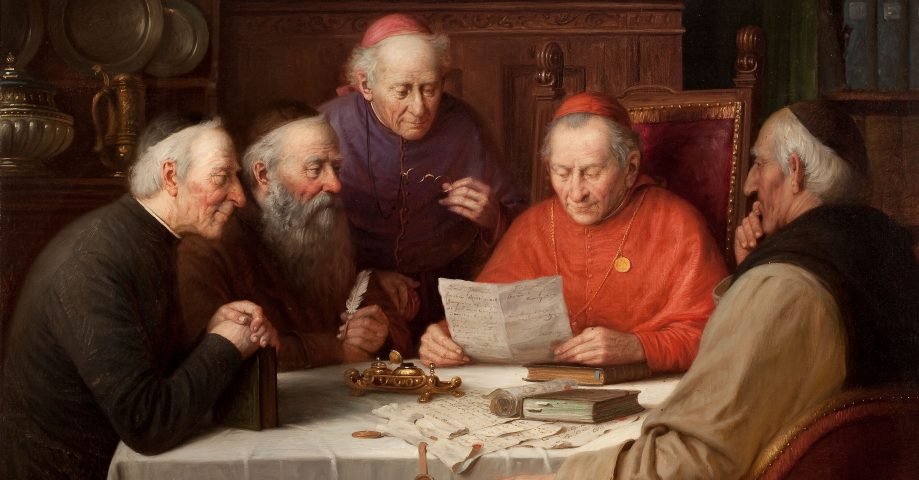Most Rev. Robert James Carlson: The Duties of the Bishop (1999)

VIDEO: DEFEND & RESIST: Michael Matt Interviews Bishop Schneider
November 4, 2019
(Video) Fr. Mark Goring: Bishop Strickland vs. Fr. James Martin – Twitter War
November 4, 2019
Image: Public Domain
By Most Rev. Robert James Carlson, CatholicCulture, PUBLISHER & DATE: Catholics United for the Faith, March 1999
DESCRIPTION: Bishop Carlson, of Sioux Falls, SD, reflects on the identity of the Bishop in the modern world, including the many challenges that he must face and his call to pastoral charity.
PUBLISHER & DATE: Catholics United for the Faith, March 1999
Why this article
The next Synod of Bishops endeavors to examine the role and importance of the episcopacy throughout the world. At a time of renewal and tremendous outpouring of grace from the Holy Spirit, we are invited as we approach the brink of the new millennium to take a courageous, honest, hopeful, and challenging look at Catholic leadership and the prominent place held by the Bishop in carrying forth the Gospel mandate to bear the light of Christ to all nations. Learning from the lessons of the past, while ever inspired by the promises of the future, we shall come together to open our hearts anew to the tremendous call to be a shepherd of God’s people and commonly strive to magnify our understanding of, appreciation for, and docility to the special sacramental life of the episcopacy and the demands and privileges which it entails. In the pages which follow, we shall briefly reflect upon some of the most important duties of the Bishop, particularly in light of the contemporary challenges inevitably facing every Bishop.
What the Bishop is
The Mystical Body of Christ cannot functionally exist without a hierarchical structure to ensure its organic unity. From the very beginning, for the Christian community to endure and organize itself after the departure of Jesus, it was necessary to institute governmental functions. It is in relation with other civilizations that our Christian identity emerges historically; Christianity must express and display its identity as a visibly gathered community. The Church assembles in a single faith and worship having as its origin the preaching of the Apostles. This reference to the Apostles assures the presence of the Gospel, which in turn allows a community to be the subject of the name “Church.” The Bishop is the successor of the Apostles, sent out to guide the flock of Christ and ensure the unity of Christians. The Bishop is a representative of Christ, commissioned to bear witness to him, to speak in his name, and to preserve all that has been handed down by means of the apostolic body. “And what you have heard from me through many witnesses entrust to faithful people who will be able to teach others as well.”1 “Go therefore . . . teaching them to obey everything that I have commanded you.”2 “Whoever listens to you listens to me, and whoever rejects you rejects me.”3
The unique purpose of the Bishop is “to build up in communion the one and only Body of Christ until it reaches full maturity.”4 The identity and mission of the Church is communion. Bishops are guardians and servants of communion. What one does follows from what one is. By virtue of his consecration and in a sacramental way, the Bishop is the embodiment of Christ and the Gospel message. He is a symbol of the unity of Christ and the Church. Acting “in persona Christi,” Bishops are a sign, voice, and means of salvation; they carry out—in visible form—the role of Christ as teacher, priest, and shepherd. ….




